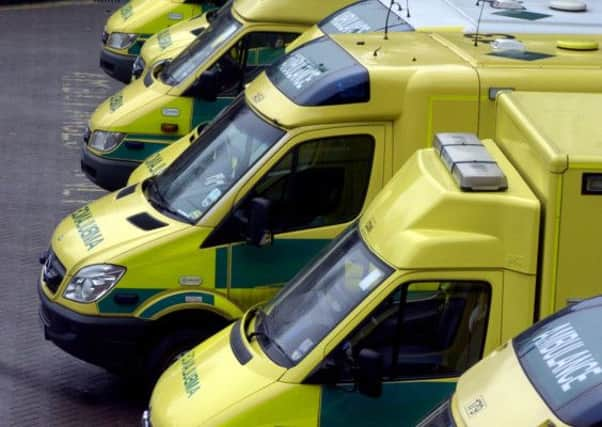Row over ‘unqualified’ staff responding to Yorkshire 999 calls


Ambulances staffed only by lesser-qualified Emergency Care Assistants (ECAs) will now be responding to incidents in Yorkshire – including the most serious emergencies.
Unions have slammed the move, calling it “deeply concerning”, while ambulance workers told the Yorkshire Post they would not want their relatives being attended by one of the non-paramedic teams.
Advertisement
Hide AdAdvertisement
Hide AdOne staff member, who asked to remain anonymous, said: “I would want someone who could intervene, treat and save my relative’s life.
“I would not want to stand there and watch as the unqualified, untrained, inadequate ambulance response did nothing but watch with me as my relative worsened and possibly died.”
Emergency Care Assistants undergo around six weeks training and can carry out first aid, basic life support and use a defibrillator, but cannot assess patients or administer drugs.
They are usually paired with a paramedic to attend incidents but earlier this week, workers at Yorkshire Ambulance Service were told that the ECA role would be changing almost immediately, including transporting some patients and acting as a first responder to “red calls”, the most serious. An internal document seen by the Yorkshire Post said there had been a “significant increase” in demand via red calls and issues with new rotas, which have already proved controversial among staff.
Advertisement
Hide AdAdvertisement
Hide AdUnison, which represents most Yorkshire Ambulance Service staff, said it was “deeply concerned over the enforced changes”.
A spokesman said: “We do not want to have our members, many of who have not been on the service long, being placed in a position that due to no fault of their own they find themselves in a situation they are unable to deal with. Neither do we want to give members of the public a false expectation of the skills of the crew arriving to help them in potentially one of the worst situations of their lives.
“The emergency care assistant role is one of providing support to the clinician – it is not a clinical role.”
But ambulance bosses insist ECAs were acting “within their capability” and would only be sent to the most serious calls very rarely.
Advertisement
Hide AdAdvertisement
Hide AdDavid Whiting, chief executive at Yorkshire Ambulance Service NHS Trust, said: “ECAs are operating well within their capability following their training and this development is also consistent with how other ambulance services operate across the country. We will be using our ECAs more flexibly to transport patients who do not require monitoring or treatment.
“They can also perform a valuable role as a first responder on scene with a defibrillator, much like our volunteer community first responders.
“As the primary role of the ECA is to work in a clinical support capacity alongside a fully-trained clinician, there will be very few occasions where they will be required to fulfil this additional element of their role.”
He said they felt it was a positive move which allowed them to use the skills of ECAs, improve care and provide an opportunity for staff to progress.
Advertisement
Hide AdAdvertisement
Hide Ad* A further ballot over industrial action is being held in an ongoing dispute which has led to a string of strikes by ambulance workers.
Unite has been embroiled in the long-running dispute over various issues, including now the sending of Emergency Care Assistants out in ambulances without paramedics.
Unite regional officer Terry Cunliffe said: “We are balloting again for industrial action to secure the right for Unite to be recognised as a legitimate trade union in order to protect patient and staff safety. This latest dangerous move in relation to staff on the A&E rotas is unacceptable and will, in my opinion, cost lives.”